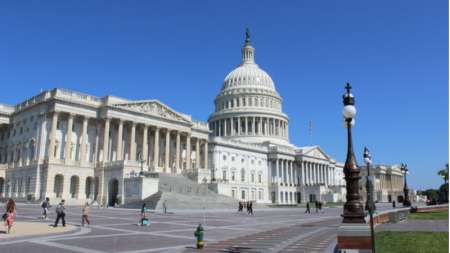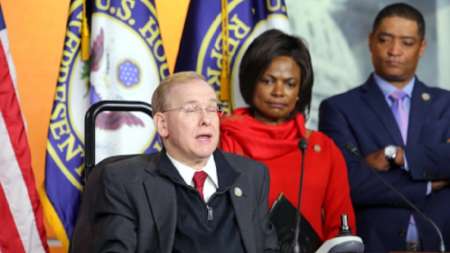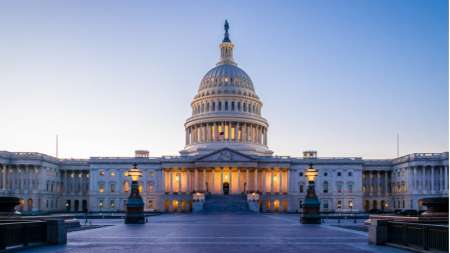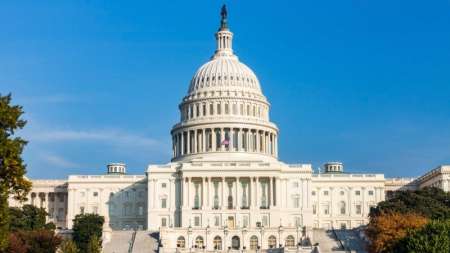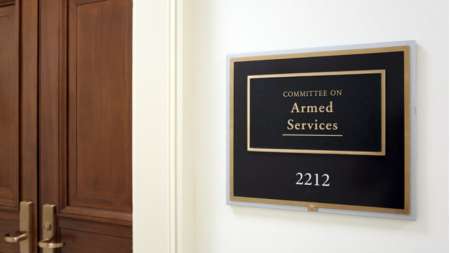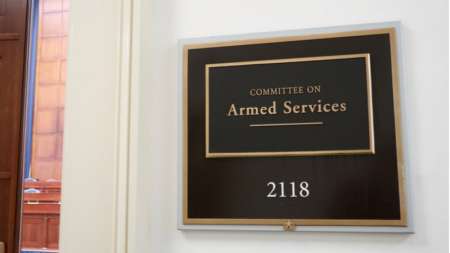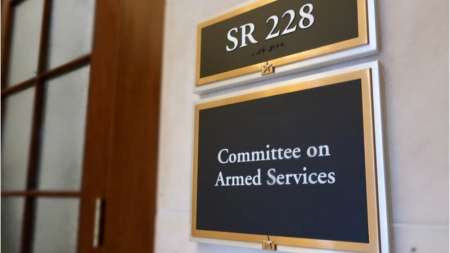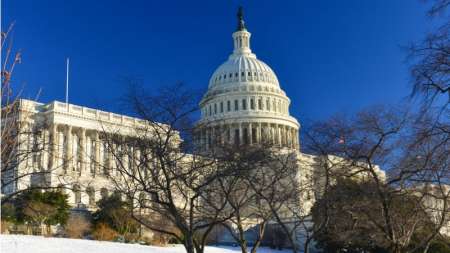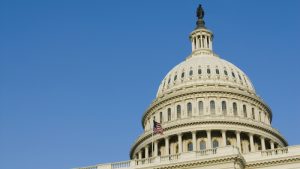Sponsors of two major pieces of legislation that would make formative changes to the way that private sector companies report cyberattacks to the government – and how Federal government agencies conduct their own cyber defenses – are hitching their hopes for passage to annual defense spending legislation that traditionally gets strong bipartisan support from lawmakers. […]
With fiscal year (FY) 2021 ending September 30, the House Rules Committee will be meeting on September 20 to decide which of the over 800 amendments filed for the FY2022 National Defense Authorization Act (NDAA) will get a floor vote. […]
The Department of Defense (DoD) awarded a five-year $979 million contract to Peraton to counter misinformation specifically originating from adversaries of the United States. […]
While the House and Senate approved their versions of the annual defense funding bill in July, the top Republican on the House Armed Services Committee said this week that a conference report from House and Senate negotiators that settles differences between the bills won’t likely be produced until after the November elections. […]
Sen. Angus King Jr., I-Maine, defended the Cyberspace Solarium Commission’s key recommendation to create a Senate-confirmed National Cyber Director before his Senate colleagues on Tuesday, finding commonality with the subcommittee chair on the position. […]
While telecommunications providers in the United States prepare to rip out and replace gear from China-based Huawei and the United Kingdom has moved to eventually ban the company’s equipment from its 5G networks, the German government has officially stated its neutrality in the matter. […]
Rep. Jim Langevin, D-R.I. – one of the pioneering policy voices in Congress on cybersecurity issues – told MeriTalk in an exclusive interview that legislative oversight of Federal government actions in the cybersecurity arena remains “absolutely essential.” […]
The Senate approved the National Defense Authorization Act (NDAA) for Fiscal Year 2021 today in an 86-14 vote, following a White House threat to veto the legislation. […]
After two days of floor debate, the House of Representatives on July 21 approved its version of the National Defense Authorization Act for Fiscal Year 2021, by a vote of 295 to 125. […]
With the base bills for the FY2021 National Defense Authorization Act now out of committee in both the House and Senate, the Cyberspace Solarium Commission is continuing its work to see its recommendations in the final legislation. […]
Sen. Ron Johnson, R-Wis., tacked on an amendment to the National Defense Authorization Act that would allow the cyber agency of the Department of Homeland Security (DHS) to subpoena internet service providers for information relating to vulnerabilities of critical infrastructure. […]
The House Armed Services Committee advanced their version of the National Defense Authorization Act (NDAA) out of committee shortly before midnight July 1, in a unanimous 56-0 vote. The bill heads to the House floor after the July recess. […]
The House Armed Services Committee spent Wednesday compiling its version of the annual National Defense Authorization Act, a process that could continue into the late evening or tomorrow if necessary, said the committee’s chairman. […]
Sen. Mark Warner, D-Va., said today that a bill to promote Open RAN technologies will be included in the Senate’s annual defense bill, but added that appropriators have not committed to fully funding the bill. […]
In its markup of the Fiscal Year 2021 National Defense Authorization Act (NDAA), the Senate Armed Services Committee is looking to terminate the Department of Defense’s (DoD) Chief Management Office (CMO) position. […]
The Senate’s annual defense bill puts the Secretary of Defense on the hook for a plan on the U.S.’ “cyber hunt forward operations,” a strategy ostensibly outlined by National Security Presidential Memorandum 13, which governs offensive cyber operations and had not been seen by members of congressional defense committees for months after its 2018 adoption. […]
The House Armed Services Committee’s Subcommittee on Readiness advanced its portion of the National Defense Authorization Act on June 23 with a few tech, cyber, and IT provisions. […]
The chairman of the National Security Commission on Artificial Intelligence said he expects “significant focus” on artificial intelligence workforce development in this year’s defense bill. […]
The Senate’s National Defense Authorization Act was approved this week by the Senate Armed Services Committee on a 25-to-2 vote, including provisions for the development of 5G, artificial intelligence and quantum technologies. […]
The House Armed Services Committee on June 5 released its markup schedule for the Fiscal Year 2021 National Defense Authorization Act – a must-pass piece of legislation that normally features plenty of technology-related provisions. […]
As the first director of the Department of Defense’s Joint Artificial Intelligence Center prepares to retire, creating an Artificial Intelligence education program for the department is at the top of the list of priorities for his yet-to-be announced successor. […]
DevSecOps, or development security operations, is not a term that rolls off the tip of your tongue in an “agile” way, but it is a process that is gaining momentum across the Federal government. […]
There is still a need “to bring technical expertise into the legislative branch,”said a Cyberspace Solarium Commission staffer. The Office of Technology Assessment (OTA) is a recommendation the commission made in order to accomplish that. […]
In an era where many government operations are data driven, clear metrics in cyberspace have remained elusive, and several individuals involved with the Cyberspace Solarium Commission are looking to change that as annual defense bills are being drafted. […]
Here’s an overview of some of the latest developments on the government and tech fronts due to COVID-19: […]
The Government Accountability Office (GAO) released a report on deepfakes, a technology which uses artificial intelligence (AI) and can depict someone appearing to say or do something they never did. […]
Acting Defense Secretary Mark T. Esper told members of the Senate Armed Services Committee today he is concerned about the impact of potential continuing budget resolutions on the military’s cybersecurity posture. […]
The House voted today to approve its version of the FY2020 National Defense Authorization Act (HR 2500). […]
The Defense Department’s (DoD) Joint Artificial Intelligence Center (JAIC) is seeking to procure innovative commercial software and services solutions to provide comprehensive data management, end-to-end platform integration, and model/capabilities development for technologies to assist in disaster relief through a new pilot program. […]
Rep. Gerry Connolly, D-Va., and House Delegate Eleanor Holmes Norton, D-D.C., have submitted an amendment to the National Defense Authorization Act (HR 2500) for FY2020 that would block the proposed merger of the Office of Personnel Management (OPM) and the General Services Administration (GSA). […]




